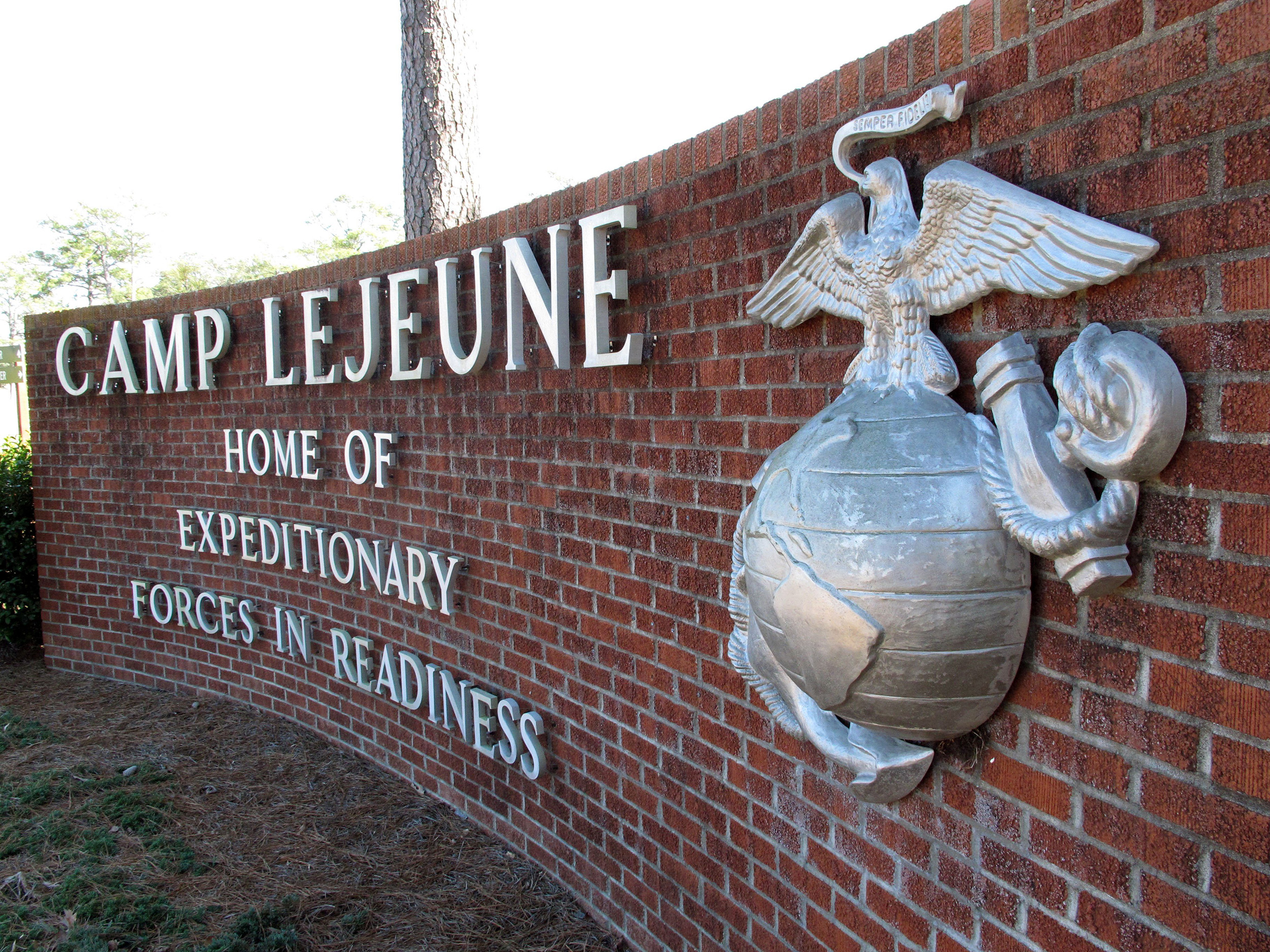
Explaining the Camp Lejeune Water Crisis

Camp Lejeune has been a popular news topic recently, and most stories are focused on compensation claims related to contaminated water. Legal experts estimate that the number of potential claims could make this case one of the largest mass litigations in U.S. history. What’s the story behind this situation? In this post, we’ll cover the background of Camp Lejeune’s water contamination and the effects it’s had on veterans and their families.
Water Contamination at Camp Lejeune
Camp Lejeune is a U.S. Marine Corps Base located in North Carolina. It was established in 1942 and includes 14 miles of beaches used for amphibious assault training. The base covers 156,000 acres and houses various Marine Corps resident commands, the Joint Maritime Training Center, and a naval hospital. There are eight water treatment plants on the base. In 1982, the Marine Corps noted that certain volatile organic compounds (VOCs) had been found in the drinking water provided by two of those plants: Tarawa Terrace and Hadnot Point. These plants, along with the Holcomb Boulevard plant, provided water to most of the family housing units on the Base. Tarawa Terrace water was contaminated by perchloroethylene or tetrachloroethylene (PCE), which was present in concentrations far exceeding the EPA’s maximum allowance. The contamination came from an off-base dry cleaning firm’s waste disposal procedures. Data and analysis from the Agency for Toxic Substances and Disease Registry (ATSDR) indicates that water from this plant was contaminated for decades: from 1957 to 1987. The wells with the most contamination were shut down in 1985. Water from the Hadnot Point plant was primarily contaminated with trichloroethylene (TCE). The water also contained other contaminants, including PCE, benzene, and vinyl chloride. In 1982, the maximum level of TCE detected was 1,400 parts per billion (ppb), which is 280 times the current EPA limit (5 ppb). There were several sources of contamination, including industrial spills, waste disposal, and underground storage tanks that leaked. The ATSDR estimates that water from this plant was contaminated during the years between August 1953 and January 1985.
Health Issues Caused by Contaminated Water
Many individuals who lived and served at Camp Lejeune have developed health problems linked to the consumption of contaminated water. According to the ATSDR, the number of people exposed to contaminated water at Camp Lejeune could be as high as 1 million. Since 1993, the ATSDR has been conducting studies to learn about the health risks associated with exposure to water contaminated with VOCs. The organization states that exposure to the contaminated water at Camp Lejeune can increase the risk of birth defects and many illnesses, including several types of cancer.
Benefits for Affected Veterans
The PACT Act, which was signed into law in August 2022, allows individuals who believe they were exposed to the contaminants in Camp Lejeune’s water to file claims with the Department of Veterans Affairs (VA). Eligible claimants may receive health care and/or financial compensation.
To receive disability benefits for exposure to contaminated water at Camp Lejeune, an individual must meet several requirements:
- Be a veteran, reservist, or national guardsman
- Have served at Camp Lejeune for at least 30 consecutive days between August 1953 and December 1987
- Have not been dishonorably discharged from the military
Additionally, an individual must be diagnosed with at least one of the “presumptive conditions” specified by the VA:
- Liver cancer
- Adult leukemia
- Bladder cancer
- Parkinson’s disease
- Multiple myeloma
- Aplastic anemia and other myelodysplastic syndromes
- Kidney cancer
- Non-Hodgkin’s lymphoma
Family members of veterans who served at Camp Lejeune during the specified time frame may also be eligible for compensation to cover healthcare costs related to certain diseases, including various types of cancer, infertility, and miscarriages.
Verify Your Home’s Water Quality
While the water contamination situation at Camp Lejeune is a statistical outlier, it shows that it can be difficult to recognize impurities and contaminants in tap water. Additionally, evidence shows that water quality can affect an individual’s health decades later. It’s vitally important to make sure that the water you and your family consume is clean and free of metals, chemicals, and other impurities. It’s not always obvious when tap water is contaminated, but the experts at Dr. Johns H2O have the knowledge and tools to assess your home’s water quality. Contact us to schedule a free water analysis service. We’ll provide you with customized solutions to ensure your home’s tap water is free of impurities. Call our office at 336-852-2525 or fill out the form below to make an appointment to have your water analyzed.
